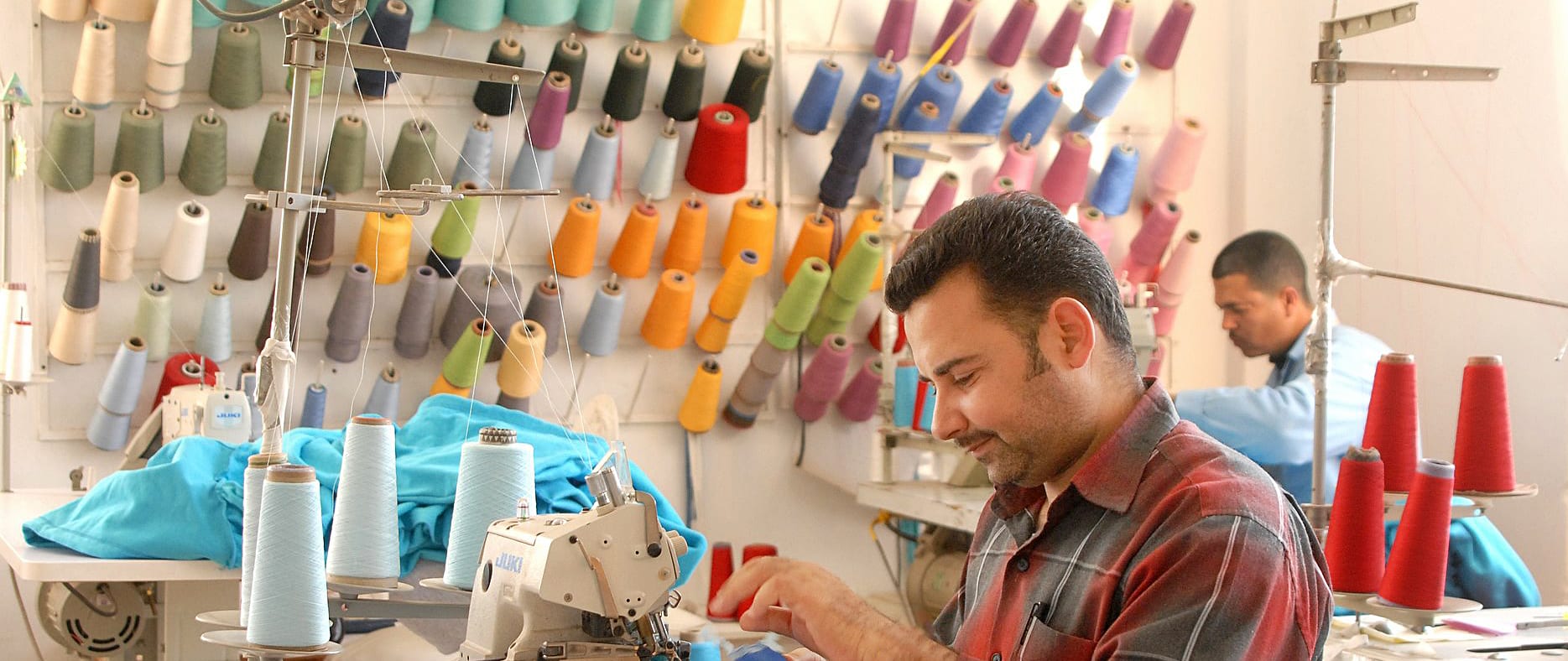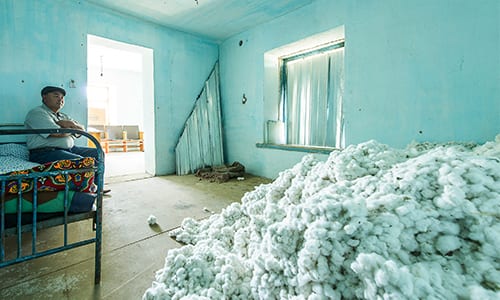Social Responsibility

The rapid globalisation in the fashion business and the challenges posed by producing ever more textiles on an ever tighter time schedule at ever cheaper prices… these developments translate into catastrophic conditions in supplier countries.
The workers that produce our textiles and leather goods suffer many injustices at their place of work. Social standards have come under public scrutiny. Independent auditors report excessive working hours, below-subsistence wages, discrimination, forced labor and other precarious or onerous work conditions.
Actually it’s all been regulated
The “Declaration of basic principles and rights of work”, the basic work standard formulated by the International Labour Organisation (ILO) exists since 1998. This UN special agency is charged with regulating workman’s and labor rights in the textile and leather goods industry. It is important to note that the ILO does not address individual commercial enterprises. Rather, it speaks directly to governments. The 140 countries which have ratified all or parts of this labor standard have obligated themselves to implementing them in their respective countries. Often, however, especially in countries marked by economic difficulties and corruption, governments tend not enforce implementation. A globalized world accepts violations of basic labor and human rights as the price for economic power and competitive advantage.
It would be incorrect to place the entire responsibility for these often terrible situations only on the shoulders of stakeholders in industry and politics. Commerce, media and the public can contribute their share to an improvement of this situation. The past has proven that pointing fingers is not effective.

Specifics
When we discuss social accountability, when we verify social standards or insist on compliance, we are talking about 3 distinct areas of activity. The foundation is a respect for basic human rights. Children should not have to work the same way that adults work. No one should be discriminated against, mistreated or forced to work, to say nothing about situations bordering on slavery. The second area to be addressed is workplace security. Does the company provide fire protection, are the escape routes freely accessible, are workers provided protective clothing, is there sufficient light, space and aeration? Ever since the catastrophe at RANA Plaza it is clear that factory buildings themselves must be appraised from the standpoint of building security. The third area to be addressed under social accountability is assuring a decent wage for workers and their families. Do workers that manufacture products for us earn enough to ensure that they do not live in poverty? Do employers maintain reasonable working hours? Are workers secured by a contract? Are they able to join together in unions? Does the employer offer ongoing training?
Responsibility as the basis of ethics
Since its inception, IVN has considered social accountability a fundamental value. We see our work as a means of offering our members a reliable tool, enabling them to add their contribution to a chain of value creation on the basis of transparent and fair practices. In the interest of proactive change, we see two instruments as the most effective means to achieve that end:
IVN has developed comprehensive guidelines for both an ecological and a socially responsible production of textiles and leather. The quality seals that arise out of these guidelines address socially explosive issues as delineated above, incorporating strict requirements to ensure compliance with social standards. These provide an orientation for consumers. The goals are formulated and enforced as formulated for each seal. Consumers can see what the specific prerequisites for the manufacture of the final product are.
At the same time, IVN actively engages in lobbying political institutions. The current focus of this work is its participation in Bündnis für nachhaltige Textilien (alliance for sustainable textiles), a working group under the auspices of the German federal ministry of foreign aid. We are a member of the task force on social standards and decent wages, drawing on our professional expertise to define a basis for practical and realistic solutions.
